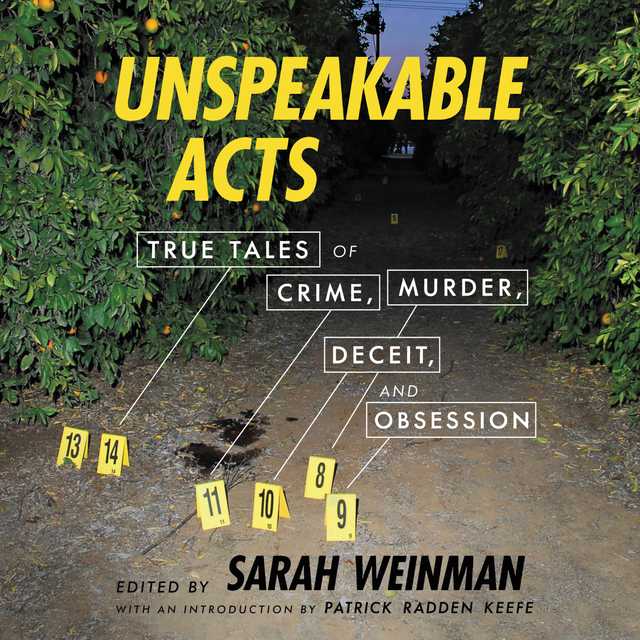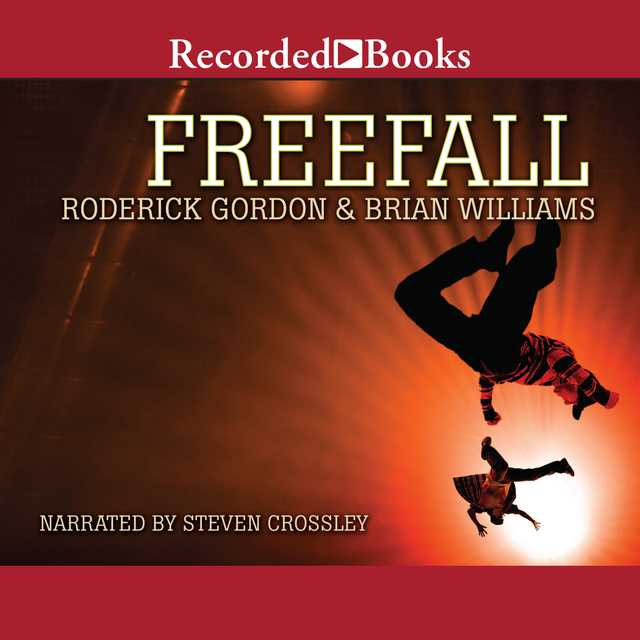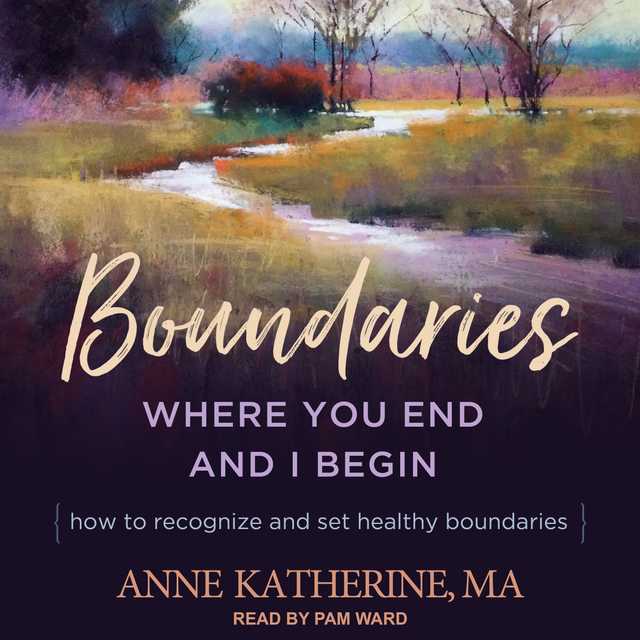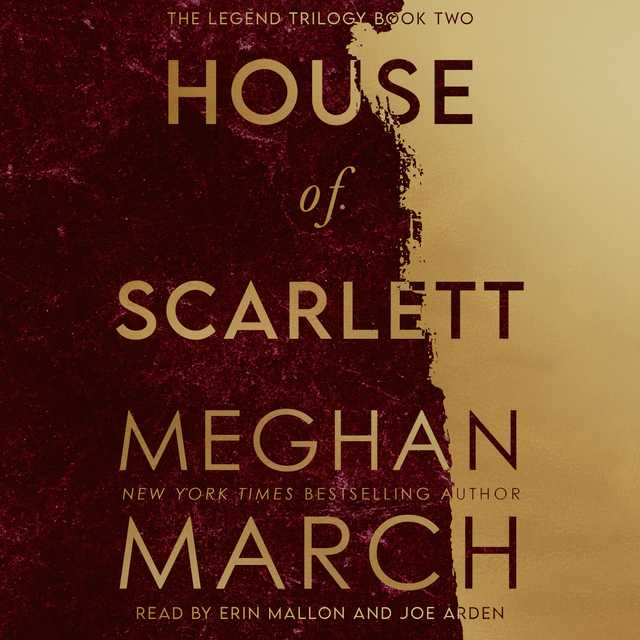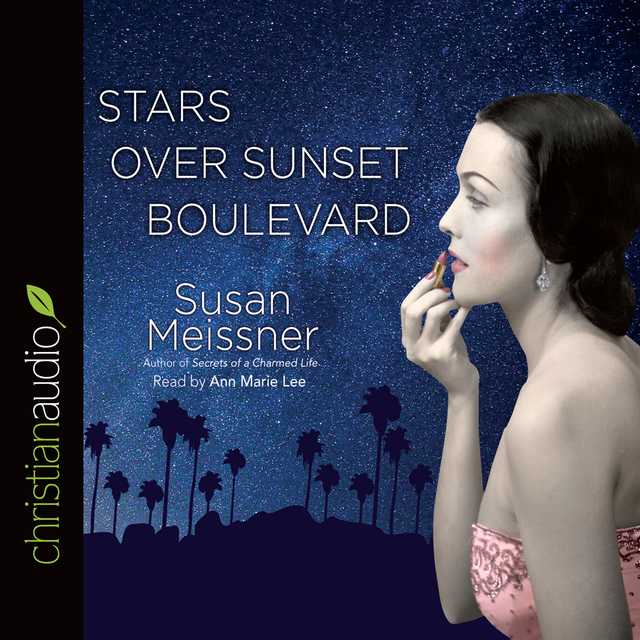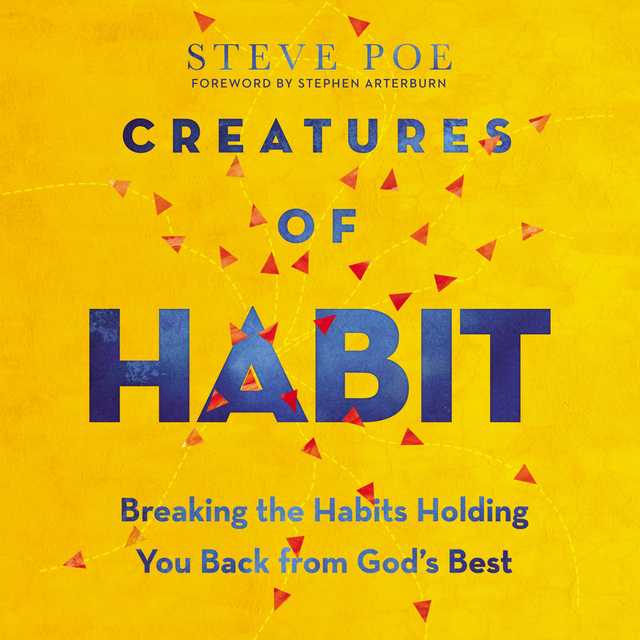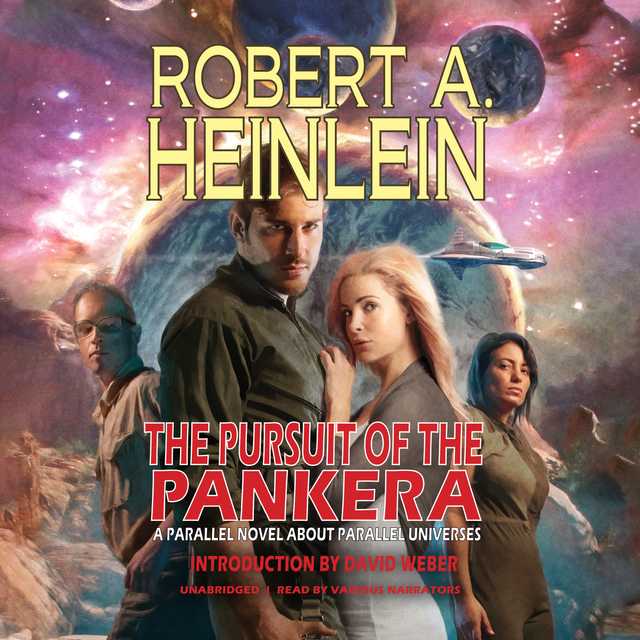Unspeakable Acts Audiobook Summary
A brilliant anthology of modern true-crime writing that illustrates the appeal of this powerful and popular genre, edited and curated by Sarah Weinman, the award-winning author of The Real Lolita
The appeal of true-crime stories has never been higher. With podcasts like My Favorite Murder and In the Dark, bestsellers like I’ll Be Gone in the Dark and Furious Hours, and TV hits like American Crime Story and Wild Wild Country, the cultural appetite for stories of real people doing terrible things is insatiable.
Acclaimed author ofThe Real Lolita and editor of Women Crime Writers: Eight Suspense Novels of the 1940s & 50s (Library of America) and Troubled Daughters, Twisted Wives (Penguin), Sarah Weinman brings together an exemplary collection of recent true crime tales. She culls together some of the most refreshing and exciting contemporary journalists and chroniclers of crime working today. Michelle Dean’s “Dee Dee Wanted Her Daughter To Be Sick” went viral when it first published and is the basis for the TV showThe Act and Pamela Colloff’s “The Reckoning,” is the gold standard for forensic journalism. There are 13 pieces in all and as a collection, they showcase writing about true crime across the broadest possible spectrum, while also reflecting what makes crime stories so transfixing and irresistible to the modern reader.
Supplemental enhancement PDF accompanies the audiobook.
Other Top Audiobooks
Unspeakable Acts Audiobook Narrator
Gabra Zackman is the narrator of Unspeakable Acts audiobook that was written by Sarah Weinman
Sarah Weinman is the author of Scoundrel and The Real Lolita and the editor, most recently, of Unspeakable Acts: True Tales of Crime, Murder, Deceit & Obsession. She was a 2020 National Magazine Award finalist for reporting and a Calderwood Journalism Fellow at MacDowell, and her work has appeared in New York magazine, the Wall Street Journal, Vanity Fair, and the Washington Post. Weinman writes the crime column for the New York Times Book Review and lives in New York City and Northampton, MA.
About the Author(s) of Unspeakable Acts
Sarah Weinman is the author of Unspeakable Acts
More From the Same
- Author : Sarah Weinman
- Scoundrel
- The Real Lolita
- Publisher : HarperAudio
- Abraham
- American Gods [TV Tie-In]
- Dead Ringer
- House of Sand and Fog
- Prey
Unspeakable Acts Full Details
| Narrator | Gabra Zackman |
| Length | 10 hours 0 minutes |
| Author | Sarah Weinman |
| Category | |
| Publisher | HarperAudio |
| Release date | July 28, 2020 |
| ISBN | 9780063005440 |
Subjects
The publisher of the Unspeakable Acts is HarperAudio. includes the following subjects: The BISAC Subject Code is General, Murder, True Crime
Additional info
The publisher of the Unspeakable Acts is HarperAudio. The imprint is HarperAudio. It is supplied by HarperAudio. The ISBN-13 is 9780063005440.
Global Availability
This book is only available in the United States.
Goodreads Reviews
sarah
July 25, 2020
Unspeakable Acts is an anthology of 13 articles published surrounding the topic of true crime. The collection touches on everything from true crime cases to the reasons behind the recent popularity of them, to the intersection of crime and identity to the criminal justice system. Each of the pieces brought something new and unique, and while my enjoyment fluctuated from story to story (as is inevitable with short story collections). I overall found Unspeakable Acts to be a thought provoking, engaging and well structured anthology. ➽Dee dee wanted her daughter to be sick, Gypsy wanted her mom to be murdered by Michelle Dean ★★★★This article took the infamous case of Gypsy Rose, which I only knew the bare bones of the story previously. Its short page count allowed adequate facts and details to be shared in bite sized chunks without being weighted down by unnecessary details. If you are interested in true crime cases such as this one, but don't want to dedicate the time to an entire book about it- I would definitely recommend this one!➽The Reckoning: The Story of Claire Wilson by Pamela Colloff ★★★★This takes the all too common tale of a US school shooting but grants a voice to a victim rather than telling the story of the perpetrator. It followed her throughout her life, and how the one act of violence had repercussions on all areas of her life. While I found some details slightly unnecessary and excessive, such as a her religious awakening- I found it really eye opening and thought provoking. I appreciated the discussions of gun control, a topic that is still so maddeningly relevant to the US over 60 years later. Overall, this was a heartbreaking and introspective piece on an event that has faded from the spotlight in the wake of more recent shootings.➽Jennifer Pan's Revenge by Karen K Ho ★★.5This is the story of a Jennifer Pan, a daughter of Vietnamese immigrants who placed pressures on her from such a young age that she eventually buckled under their weight. I had heard of this story briefly before, and it is interesting but doesn’t go very in depth on the psychology which is what intrigued me the most about the case. I would have preferred a more in depth character study about the reasons behind the crime. Overall, lots to think about related to pressure, stress, lies and parenting but a bit surface level. ➽The perfect man who wasn’t by Rachel Monroe ★★★★Tells the well known story of ‘Dirty John’ in a succinct and victim centred way. It’s crazy to think how this could happen to so many people, but really exposes the gaps in justice and police systems when it comes to relationship fraud/dating scams "The implication is that these women should’ve known better, or perhaps that they’re complicit in their own victimization. If a woman reports her ex for stealing from her, who’s to say she’s not just brokenhearted and vindictive?"➽Out Came the girls by Alex Mar ★★★★★No matter how many times I read, listen to podcasts or even see pictures of ‘slender man’ it always manages to thoroughly unnerve me. Throughout the tale it weaves a similar story from New Zealand and goes into the psychology of teenage girls, and the possible reasons behind why. This was incredibly well written and captivating, making links to Brothers Grimm's fairytales and the Salem Witch Trials in a riveting and eye-opening way. ➽The end of evil by Sarah Marshall ★★★★★This took something that I had previously been completely unwavering in my opinion, and introduced some doubt into my mind- reconsidering Ted Bundy's psychopath diagnosis. While I didn't agree with everything Sarah Marshall wrote, I always find it beneficial to consider other perspectives, expanding the mind . This was thought provoking and morally grey and I would definitely recommend even if you think you know the story of Ted Bundy. "Today, the diagnosis of “psychopath” is meted out as freely in the courtroom as it is during prime time, and its effect is always the same: instant dehumanization.When it comes to assigning blame, no designation could be more comforting. The psychopath is born bad. Nothing can fix him. Society cannot be at fault, and there is no point in wondering whether timely treatment could have averted the inevitable. He does what he wants to do. He knows it is wrong. He can control himself; he simply chooses not to. The idea that the psychopath is somehow more deserving of blame because he was born bad—that his lack of empathy serves as proof of his evil, despite a diagnosis that says he cannot feel it, no matter how he tries—is a paradox few have attempted to address."➽The ethical dilemma of highbrow true crime by Alice Bolin ★★★This was just okay? It had some good commentary and was pretty meta but had me feeling quite defensive at times (stop attacking Serial and My Favourite Murder ahhhh) "I suspect the new true-crime obsession has something to do with the massive, terrifying problems we face as a society: government corruption, mass violence, corporate greed, income inequality, police brutality, environmental degradation, human-rights violations. These are large-scale crimes whose resolutions, though not mysterious, are also not forthcoming. Focusing on one case, bearing down on its minutiae and discovering who is to blame, serves as both an escape and a means of feeling in ➽The Lost Children of Runaway Train by Elon Green ★★.5Short and sweet but not too much substance to it. Focuses around Soul Aslyum's music video for ‘runaway train’ and various runaways in the US, some of which were found as a result and other who are still missing. I felt the potential was there, but it fell short of the mark. ➽The true crime story behind a 1970s cult feminist film classic by Sarah Weinman ★★This was about the apparently famous film Wanda that I have never seen (or heard of for that matter). I think I may have enjoyed this a bit more had I had some background knowledge on the film or background to it. It was an interesting and well written story in its own right, just not as engrossing as some of the others. ➽What Bullets Do To Bodies by Jason Fagone ★★★.5This was an interesting read entering around a trauma surgeon who commonly works with the injuries inflicted by bullets. I was surprised to realise how little I actually knew about gunshot wounds and how devastating they can be. "More than 30,000 people die of gunshot wounds each year in America, around 75,000 more are injured, and we have no visceral sense of what physically happens inside a person when he’s shot. Goldberg does."➽Checkpoint Nation by Melissa del Bosque ★★★★.5As someone from outside the US, I had some knowledge of American immigration agencies and the problems surrounding them- but had no idea how corrupt they truly are. This piece centres around the ICE and CBP in particular and how horrible those national border so called 'protection' agencies are. Really insightful and informative for those who might not know much about them. ➽How a Dubious Forensic Science Spread Like a Virus by Leora Smith ★★★.5This story is essentially a debunking of the 'science' of blood spatter analysis and its creator. I had no idea of the story behind what is now common in crime shows, and how misleading it can be. I found the discussions around precedents in the criminal justice system interesting as well. "In time, MacDonell’s students, many of whom only had 40 hours of training, started testifying as experts, too. Then the students of his students. They modeled their testimony after his. They invoked MacDonell’s name as evidence of their expertise. They borrowed his phrases, his descriptions, his experiments, to support their analysis. Judges borrowed the reasoning of other judges who had admitted MacDonell when they ruled to admit his students."➽“I am a girl now,” Sage Smith Wrote. Then She Went Missing. by Emma Copley Eisenberg ★★★★ This was the story of a black, trans girl who went missing- and how her identity played a heartbreaking role in her never being found. The case is compared to a white woman who went missing in similar circumstances and how large the discrepancy was between them. It is maddening and horrific how marginalised people are still considered less important because of their identities. "police more often classify minority children as runaways rather than victims of crimes, and that the reverse is true for white children."➽ OverallIf you enjoy true crime, or want to dip your toes into the genre- this is the perfect place to start. Know that not all the articles are focusing on a specific crime, but rather provided insightful analyses of the genre as a whole. I would definitely recommend the entire collection, but in particular the Slenderman and Ted Bundy pieces"The fascination with murder and illegality is a perennial one, because the shock of the deed creates a schism between order and chaos. We wish for justice, but even when we get it, the result rings somewhat hollow. We gorge on facts and innuendo but are then left with the hangover of trauma, the aftermath of a system that too often fails people. We crave a narrative that restores righteousness but are left with scraps of barely connected meaning."Thanks to HarperCollins for the ARCRelease Date: 28 July 2020
Lori
July 14, 2020
In Unspeakable Acts, editor Sarah Weinman brings together 13 previously published long-form pieces that relate in some way to true crime. The first section of the book consists of four straight narrative features; the second examines how true crime and culture intersect; and the final section, considers “broader issues of criminal justice and society.” At the very end of the book, Weinman recommends various books, articles and podcasts to true crime enthusiasts. As someone who's relatively new to the true crime genre, I found this anthology a good place to start. Or at least to go on “starting” (I didn't listen to Serial until two years after it came out, but I'm catching up, one podcast at a time). I also would suggest it to readers who want to think about true crime in a deeper way that seeks to contextualize the craze. The first four pieces are well written classic true crime stories I'd heard about but wasn't familiar with in any sense. I enjoyed all of them, especially Pamela Colloff's “The Reckoning,” which concerns a pregnant student victim of the 1966 sniper attack at the University of Texas. Not only does the article chronicle the impact the shooting had on Claire Wilson over the course of decades, but it traces cultural shifts as well. Now shootings are a way of life, but Claire has to actually visit the University library and track down a copy of Life magazine to convince herself the shooting was real. Nobody talked about such tragedies back then. Better to simply move forward as if nothing had happened. At least that's what the conventional wisdom was back in 1967, when Claire was struggling to come to terms with her trauma and her grief. It was the second section of the book I liked best, however. Alex Mar's piece, “Out Came the Girls” had an almost hypnotic power over me. I read it then finished the book, then went back and read it again. This may in part because I'd never heard of “Slender Man” and had no idea that this cult figure led two 12-year-old girls to repeatedly stab their friend in 2014 (on a side note, the fact that my daughter is fully familiar with “Slender Man” and has even played the video game would likely come as no surprise to Mar). But what made the article was Mar's insightful analysis of the the case as a way to think about the adolescent female mind. She ties the Slender Man stabbing to a decades-old murder case in New Zealand that involved novelist Anne Perry (formerly the teenager Juliet Hulme) and her best friend. She then goes further – exploring links to the Salem Witch Trials, Carl Jung and Grimm's fairy tales – in an attempt to understand the blurred line between imagination and reality that sometimes occurs with young girls. In a related vein, Sarah Marshall's “The End of Evil,” reconsiders Ted Bundy's “psychopath” diagnosis and in doing so forces readers to reconsider the term in its entirety. I didn't always agree with Marshall, but the piece forced me to rethink much about Bundy and his role in American culture. The same can be said for Alice Bolin's “The Ethical Dilemma of Highbrow True Crime.” Agree or disagree, Bolin raises real questions about the roots of the current true crime phenomenon, as well as its consequences. The other two articles, including Weinman's, also held my interest. Unfortunately, the third section of the book didn't work for me. I did love Jason Fagone's “What Bullets Do to Bodies,” but the other articles didn't seem to fit with the anthology as a whole. Or maybe the collection just got too broad for me at this point. I also took issue with the article on blood spatter analysis, which I found myself in disagreement with in key places. Yes, the forensics have fallen far short of the goal but to dismiss it as “junk science” strikes me as too easy a conclusion. Fingerprint and DNA analysis have also resulted in many wrongful convictions, particularly after they were first discovered, but we don't categorize them as “junk science” that have no place in a court room. With advances in computer science, physicists are making real progress but this prospect is mostly unexplored in the article. Still, it's well researched and gives a sense of the background of the field. The list of recommended reading/listening at the end of the book was also helpful, particularly because of my lack of knowledge of the genre. I'm only a fledgling true-crime aficionado, but I do read lots of anthologies. My rule of thumb is that if I find two or three pieces I really like, I consider the book well worth my time. So I recommend Unspeakable Acts, especially if you're looking for a more meta experience re the genre. Much thanks to Harper Collins and Netgalley for an ARC in exchange for an honest review.
Vanessa
November 06, 2020
This was an impulse buy from the Barnes & Noble BOGO table, and I ended up loving it. This collection of articles from various sources (Texas Monthly, Buzzfeed, The Believer, etc.) only had one clunker in the bunch of 13. It's hard to pick favorites but it I had to, it was probably "The Reckoning" by Pamela Colloff, a breathtaking piece of reporting that covers the life of a single victim of Charles Whitman (the University of Texas Tower Sniper.) Although Claire Wilson survived, she lost her boyfriend and her baby (evidence showed that Whitman had aimed for her visibly pregnant stomach.) As you read about how her life was knocked off course, the unspoken context is this is the story of only one victim of violence. Also, here's the most depressing quote about this country's obsession with guns from an article by Jason Fagone about bullets and trauma surgery:"As a country," she [Temple University Hospital trauma surgeon Amy Goldberg] said, "we lost our teachable moment." She started talking about the 2012 murder of 20 schoolchildren and 6 adults at Sandy Hook Elementary School. Goldberg said that if people had been shown the autopsy photos of the kids, the gun debate would have been transformed. "The fact that not a single one of those kids was able to be transported to a hospital, tells me that they were not just dead, but really really really really dead....." She said people have to confront the physical reality of gun violence without the polite filters. "The country won't be ready for it, but that's what needs to happen. That's the only chance at all for this to ever be reversed."Other articles include the story of Gypsy Rose, the Slenderman murders, and the long hunt for justice by a group of women who were all lovescammed by the same imposter. The only article I didn't like was Sarah Marshall's "The End of Evil" about Ted Bundy, because reading about having sympathy for Ted Bundy and how maybe psychopaths don't exist was.......weird. Highly recommended if you're at all into true crime or journalism.
Valerity (Val)
April 15, 2020
This was an enjoyable anthology of true crime stories that kept me entertained. There are thirteen different stories curated by Sarah Weinman. I also liked that at the end there’s a list of further articles and books suggested to read. I can vouch for some of them, as I’ve read them. I’m going to check out some of the rest as well. Advanced electronic review copy was provided by NetGalley, editor Sarah Weinman, and the publisher.
Trin
May 06, 2020
Though true crime is still in the midst of a boom -- because the world is a nightmare -- anthologies like Best American Crime Writing have for some reason ceased publication. Journalist Sarah Weinman seeks to fill that gap with Unspeakable Acts -- and to my mind exceeds both expectations and the quality and ambition of those old series.Pretty much every essay in this collection is meaty, well-written, and thoughtful in its analysis. Not merely a grim or prurient reporting of nasty details, every essay strives to connect the crime in question to larger social concerns -- which is exactly what good true crime writing can and should do. Weinman's selection includes an admirably diverse array of topics and tones. I don't usually do this with anthologies but the meta narrative of the chosen pieces is so interesting, I want to touch on each one individually:Michelle Dean, "Dee Dee Wanted Her Daughter to Be Sick, Gypsy Wanted Her Mom to Be Murdered"This story is the basis for the Hulu show The Act, which I haven't seen, though I'd heard this horrible tale of Munchausen by proxy elsewhere. But Dean really broke it open -- this is excellent reporting.Pamela Colloff, "The Reckoning"Colloff profiles one victim of one of the earliest school shootings, the 1966 sniper attack on the University of Texas' Austin campus, and how the effect of this violence radiated out through the rest of her life. An interesting angle on an event that's receded into history (especially in the wake of more recent mass shootings) and a truly heartbreaking piece.Karen K. Ho, "Jennifer Pan's Revenge"A shattered Canadian dream story, in which the daughter of Vietnamese immigrants cracks under (extreme) parental pressure and orders a disastrous hit on her parents. Ho went to school with the perpetrator and one of her co-conspirators, but this barely factors into the narrative, which is interesting. This is a good essay, if not extraordinary.Rachel Monroe, "The Perfect Man Who Wasn't"A con man story! Monroe is such a good writer. Read Savage Appetites.Alex Mar, "Out Came the Girls"This covers the story of two preteen girls who stabbed one of their friends nearly to death because they believed creepypasta sensation Slenderman told them to. I already knew this story back to front, as I'd watched the 2016 documentary, Beware the Slenderman, which Mar cites. But she pairs this story with that of Pauline Parker and Juliet Hulme (the inspiration for the film Heavenly Creatures) and draws some interesting connections about the consuming nature of girls' fantasy lives.Sarah Marshall, "The End of Evil"I'm a big fan of the podcast Sarah Marshall hosts, "You're Wrong About." This piece about Ted Bundy was a little uneven -- I wish it had focused more on the politics around his execution, without so much recapping of his crimes, which I will lay down money anyone reading a true crime book already knows far too well. I also think first person sections were unnecessary, though very Believer-y (which makes sense as this was first published in The Believer). But Marshall's indictment of the "psychopath" diagnosis is absolutely brilliant.Alice Bolin, "The Ethical Dilemma of Highbrow True Crime"This is the collection's meta-essay. It's pretty great.Elon Green, "The Lost Children of 'Runaway Train'"My least favorite piece in the collection. It's not bad: it's the story behind the band Soul Asylum's video for "Runaway Train," which featured pictures of real missing kids and actually resulted in some being found. But Green doesn't really explore this idea; the piece feels slight.Sarah Weinman, "The True Crime Story Behind a 1970s Cult Feminist Film Classic"As much as I admire Weinman, and the way she put together this collection, this is actually my second least-favorite piece. I think I may just find the story of Alma Malone -- terrible bank robber and inspiration for Barbara Loden's film Wanda -- one thousand times less interesting than either Weinman or Loden -- and Weinman doesn't convince me I should feel otherwise.Jason Fagone, "What Bullets Do to Bodies"A brilliant profile of a Philadelphia trauma surgeon, and a powerful indictment of gun violence. A terrific, unexpected piece. I love Weinman for including this in a true crime book. You watch Wanda all you like, girl.Melissa del Bosque, "Checkpoint Nation"Fuck US Customs and Border Protection: The Essay. Starting with Fagone's piece, above, every entry in this final section of the book, called "Justice and Society," is fire.Leora Smith, "How a Dubious Forensic Science Spread Like a Virus"A brilliant takedown of the junk science of blood spatter analysis -- and its inventor.Emma Copley Eisenberg, "'I Am a Girl Now,' Sage Smith Wrote. Then She Went Missing."A heartbreaking example of police and the public only caring about missing girls when they're white. When Eisenberg breaks down the statistical differences between the police effort to find Sage Smith -- who was trans, black, and poor -- and a young white woman who went missing around the same time, it's staggering. And devastating.In case it's not clear: this is a stellar collection. It doesn't have the word "Best" in the title, but you should consider it implicit.
Valerity (Val)
December 31, 2020
Review to follow
Laura
August 10, 2020
Unspeakable Acts is a true crime anthology. So basically the book is comprised of already published stories about various crimes throughout history, from Dee Dee Blanchard & Gypsy Rose to Ted Bundy. I think it would’ve worked better using cases that aren’t as well known. Trying to capture Ted Bundy in an hour long section doesn’t really work. I found myself enjoying the cases I wasn’t as familiar with. It’s a really cool approach to true crime and I’d love to find more like this. There are con-men, murderers, there a blood splatter section for Dexter fans 🩸If you do read this, don’t miss the immigration one re: ICE (sorry I don’t know the name of the chapter) Narration was really good : Gabra Zackman & Graham Halstead.
Mara
March 23, 2021
This is a collection of pieces, ranging from what we think of as “typical” (though they're quite wonderful) true crime, to more meta examinations of our fascination with the genre. Editor Sarah Weinman boldly addresses the problems inherent in ‘the true crime industrial complex’, and takes steps towards highlighting works that are stepping outside those bounds. “‘I am a girl now,’ Sage Smith Wrote. Then She Went Missing” by Emma Copley Eisenberg juxtaposes the system's response to a Black trans woman's disappearance with that of a victim more typical of those we see in the news (a white girl gone missing). The “Justice and Society” section includes three essays that zoom out, looking at the broader social problems and systemic failures that are too often ignored, or go unaddressed in the genre.Anyway, this isn't much in the way of a review, but I did want to highlight some elements you might not glean by reading the title alone.
Savanna
August 15, 2020
First, if you are a consumer of true crime narratives, you will absolutely have read some of these stories before. I was absolutely okay with that, because there was so much value added by the selection and flow of the organization—it’s a tasting menu of true crime. After reading the editor’s note I knew we were going to progress from the sensationalist and pulpy, through a critical look at why we enjoy true crime, and finally we would end with stories about the systemic problems of our culture that underpin true crime stories. The anthology starts with Michelle Dean’s viral Buzzfeed article about Dee Dee and Gypsy Rose Blanchard, which I would hazard most potential reader have already come across in one form or another. Though I had read the article at least twice before, it was an interesting experience to read it again knowing that I was going to be led on this editorial journey. The other highlight for me from section one was the second story: Pamela Colloff’s “The Reckoning,” which follows the life trajectory of Claire Wilson, the first victim of the UT sniper, who was eight months pregnant when she was attacked. I truly enjoyed all of the stories in this anthology, but I especially enjoyed section three. Each story in section three was compelling and spoke directly to issues larger than the traditional “pretty girls and serial killers’ lore of true crime. Part three covers, in order, gun violence and specifically the physical trauma of gun injuries, the overreach of border patrol (which I, even as a lawyer was unaware of), the lack of hard science behind blood spatter analysis, and the resources spent on some victims of crime and not on others (specifically black trans individuals, which felt particularly timely). In short, you could likely find all of these stories individually through Google, in the places they were originally published. I would urge you not to do that—there is value added to reading them in this order and thinking about them critically.
Kathleen
July 19, 2020
Know up front that this is an anthology of previously published articles - 13 of them. Also know that it's not all about the down and dirty of the crime (it's not forensic files) but that Weinman has also included pieces that look at the intersection of crime and culture and the criminal justice system. In other words, it's more series than the title and cover might lead you to believe. It's one to dip in and out of- and as with short stories, you might not enjoy one or more of the articles but the overarching theme is there. Weinman has assembled this thoughtfully and with care. Thanks to Edelweiss for the ARC. I learned from reading this collection, which is always a plus to me.
Casey
December 15, 2020
This collection of true crime writing is varied and fascinating. Some pieces are not as strong as others, but the ones that made an impact more than made up for it. For the most part, the focus is on victims of crime (not always murder, not always young white girls/women), and that is so important with any true crime I would recommend.
Coral
April 02, 2022
Fantastically written with a wide variety of cases covered.
Rachel
December 17, 2020
If you’re looking to further explore the true crime genre and look past the featured dead white girl with her upper class values, you might want to add Unspeakable Acts to your reading list. Curated by Sarah Weinman, this anthology combines articles and essays to look into majors crimes and issues. Half the battle when dealing with the subject itself is that true crime has become sensationalized, and has been replicated neatly into fiction, be it filmed or literary avenues. It is difficult, separating raw reality to punchy headlines and film reels._ full review can be found at my newly launched blog: https://rachelelizabethsmall.wordpres...
Peacegal
September 03, 2020
This is an intelligent and perceptive collection of true crime writing—from essay-length accounts of actual crimes to medical and sociological analyses of the true crime phenomenon.One of the book’s most thought-provoking chapters probes the true crime “entertainment” industry—and should be required reading for all of us readers and watchers of crime content. Why do we like true crime? Many fans—myself included—have put ourselves on high horses because we select “intelligent” true crime, that is, material that is presented in a more reserved and educated way rather than the lurid stuff best known for sensational titles in dripping-blood fonts and graphic crime scene photos. But is “smart true crime” just another facet of exploitation? There’s no easy answer, and Alice Bolin’s essay raises some good points.[Indeed, one of the longstanding ramifications of true crime entertainment is the creation of violent criminal celebrities. “Tiger King” is too new for Bolin’s essay, but it’s a perfect example. Walter Palmer killed Cecil the lion and faced worldwide condemnation. Joe Schreibvogel killed at least five tigers, abused and neglected an unknown number more, and became a quirky antihero celebrated in memes, t-shirts, and celebrity tweets. The difference? Palmer didn’t have a Netflix series that gave him a nationwide audience to promote himself and air his opinions.]By far, the most frightening essay was titled “Checkpoint Nation,” about the U.S. Border Patrol in its various guises, and should be read by everyone, period. It is absolutely horrifying, and the outside-of-the-law (and often hundreds of miles away from the border) behavior of this agency is the stuff of third-world dictatorships, and not what even the most cynical among us would expect to happen in a free country. Would you like to be forcefully detained and subjected to repeated humiliating body cavity searches under arbitrary pretexts or perhaps for no identifiable reason at all? Anyone who champions freedom and liberty yet turns around and defends this agency needs to seriously examine both sides of the issue.
France-Andrée
August 10, 2020
An interesting read, the articles chosen by the editor are all interesting and very different from each other. The book is separated in three parts, all three have to do with real crimes, but only the first part is traditional true crime because of that it was not what I was expecting and that was a good surprise.Part 1: Narrative FeatureIn these four stories, I knew only one well and it's the one set in Canada (makes sense, I am Canadian). Like I said this is more traditional true crime, but it was all fascinating.Part 2: Crime Meets CultureHere, we get more the links between influence of culture on crime or vice versa. It touches on role playing games, what we perceive because of media reporting (a quite complex piece on Ted Bundy that touches on a lot of points, I think that was my favorite), highbrow true crime (a lot about podcasts here), an update on some children of the music video of the 90s "Runaway Train" (I still see some images in my head) and, finally, one movie versus the reality of the crime it depicts.Part 3: Justice and SocietyMy least favorite part because it got a little too much into the United States dynamics which personally don't interest me as much as it must interest someone from that country. Still good solid articles about a doctor's work in trauma, internal border police (that's the one that I found the least interesting, it's all about internal american policing, it's still fascinating, but a little remote for me), one about the dubious science of blood spattering (very good, puts the subject in it's right place in my opinion) and a sad story about a young trans woman (how the investigation of her disappearance went wrong).All in all a fascinating read, didn't skip any articles, they have all their highlights. A good job of the editor to bring all of these together. Would recommend to a fan of true crime.
Jennifer
April 17, 2021
Broken into three parts—Narrative Features, Where Crime Meets Culture, and Justice and Society—this collection truly shines in the third as the pieces explicitly tackle larger, systemic themes including gun violence, policing, the courts, racism and LGBTQ+ rights.This anthology does what I was hoping it would, presenting excellent pieces of true crime journalism while trying to reflectively “chronicle” the cultural moment true crime is having. The dedication does a lot to set up the collection’s point of view: “To those who find meaning, solace, catharsis, and outrage in crime stories, which is all of us”.The stories that resonated the most for me:- The Reckoning by Pamela Colloff- The Ethical Dilemma of Highbrow True Crime by Alice Bolin- Checkpoint Nation by Melissa Del Bosque - “I am a girl now,” Sage Smith Wrote. Then She Went Missing by Emma Copley Eisenberg
Frequently asked questions
Listening to audiobooks not only easy, it is also very convenient. You can listen to audiobooks on almost every device. From your laptop to your smart phone or even a smart speaker like Apple HomePod or even Alexa. Here’s how you can get started listening to audiobooks.
- 1. Download your favorite audiobook app such as Speechify.
- 2. Sign up for an account.
- 3. Browse the library for the best audiobooks and select the first one for free
- 4. Download the audiobook file to your device
- 5. Open the Speechify audiobook app and select the audiobook you want to listen to.
- 6. Adjust the playback speed and other settings to your preference.
- 7. Press play and enjoy!
While you can listen to the bestsellers on almost any device, and preferences may vary, generally smart phones are offer the most convenience factor. You could be working out, grocery shopping, or even watching your dog in the dog park on a Saturday morning.
However, most audiobook apps work across multiple devices so you can pick up that riveting new Stephen King book you started at the dog park, back on your laptop when you get back home.
Speechify is one of the best apps for audiobooks. The pricing structure is the most competitive in the market and the app is easy to use. It features the best sellers and award winning authors. Listen to your favorite books or discover new ones and listen to real voice actors read to you. Getting started is easy, the first book is free.
Research showcasing the brain health benefits of reading on a regular basis is wide-ranging and undeniable. However, research comparing the benefits of reading vs listening is much more sparse. According to professor of psychology and author Dr. Kristen Willeumier, though, there is good reason to believe that the reading experience provided by audiobooks offers many of the same brain benefits as reading a physical book.
Audiobooks are recordings of books that are read aloud by a professional voice actor. The recordings are typically available for purchase and download in digital formats such as MP3, WMA, or AAC. They can also be streamed from online services like Speechify, Audible, AppleBooks, or Spotify.
You simply download the app onto your smart phone, create your account, and in Speechify, you can choose your first book, from our vast library of best-sellers and classics, to read for free.
Audiobooks, like real books can add up over time. Here’s where you can listen to audiobooks for free. Speechify let’s you read your first best seller for free. Apart from that, we have a vast selection of free audiobooks that you can enjoy. Get the same rich experience no matter if the book was free or not.
It depends. Yes, there are free audiobooks and paid audiobooks. Speechify offers a blend of both!
It varies. The easiest way depends on a few things. The app and service you use, which device, and platform. Speechify is the easiest way to listen to audiobooks. Downloading the app is quick. It is not a large app and does not eat up space on your iPhone or Android device.
Listening to audiobooks on your smart phone, with Speechify, is the easiest way to listen to audiobooks.

